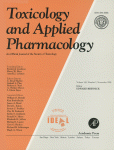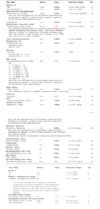Recently, I came across the thread where a new treatment is being discussed that involves antagonism of prolactin and/or the prolactin receptor. I was intrigued by the relationship between dopamine, prolactin, and their receptors and decided to do a little research because of the connection with Finasteride and hyperprolactinemia.
To give a little background: I made a full recovery from PFS due to finasteride use almost 3 years ago, but shortly thereafter put myself right back into the same mess by trying to experiment with topical microdosing of finasteride. I've been steadily (albeit, very slowly) recovering from finasteride since then by replicating what I did the first time I recovered, but about a month ago I decided to incorporate 100% pure l-dopa into my protocol. I did this because I realized that I had been using it for a least a few weeks when I recovered the first time around, but I thought that I had been using mucuna pruriens and didn't think much of it.
After some research, I believe that dopamine and prolactin may be involved in a signaling cascade that leads to regulation of 5-alpha reductase. Both dopamine and DHT have highly anti-prolactinogenic effects. It would make sense to me that the lack of 5AR expression (and, thus, lack of DHT) would cause the suppression of anti-prolactinogenic activity, leading to the hyperprolactinemia that is seen with finasteride use. I've not found any clinical studies defining a relationship between DHT, 5AR, and dopaminergic activity, but I would not be surprised if there's an interdependency between them. Finasteride could have disturbed a self-sustaining feedback loop by decreasing DHT (and, thus, its inhibitory action on prolactin) and set prolactinogenic activity high. With prolactinogenic activity high and dopaminergic activity low, this could be how 5AR expression may be stuck low. There's also a connection between dopamine and human growth hormone releasing hormone (hGHRH). l-dopa causes a significant increase in the secretion of hGHRH (and, thus, hGH) and there have been some interesting stories about hGH helping in the recovery of PFS.
If I recover from finasteride over the coming weeks, it doesn't necessarily mean it was from the l-dopa. That's why, if I do recover, I'd like to see if I can encourage some other people struggling with PFS to try using l-dopa to verify that it played a role in helping me both this time and the last time I recovered.
If you are struggling with PFS, I think I might try l-dopa. The only negative effects that I experience are a temporary increase in epinephrine, elevated heart rate and blood pressure... that nervous fight or flight rush. And technically, if I used carbidopa along with the l-dopa, I probably wouldn't experience those side effects. I'm not really bothered much by them, though.
I'm taking 750 mg of l-dopa, but, if anyone is interested in trying this, I would say that you should use at least 500 mg daily and see how it affects you over the course of 1-3 months. If it actually works, I don't think it should take much longer than a month.
For anyone interested, here are a few of the studies I've looked at over the past week that have led me to this belief:

 www.sciencedirect.com
www.sciencedirect.com

 www.ncbi.nlm.nih.gov
www.ncbi.nlm.nih.gov

 pubmed.ncbi.nlm.nih.gov
pubmed.ncbi.nlm.nih.gov

 pubmed.ncbi.nlm.nih.gov
pubmed.ncbi.nlm.nih.gov
To give a little background: I made a full recovery from PFS due to finasteride use almost 3 years ago, but shortly thereafter put myself right back into the same mess by trying to experiment with topical microdosing of finasteride. I've been steadily (albeit, very slowly) recovering from finasteride since then by replicating what I did the first time I recovered, but about a month ago I decided to incorporate 100% pure l-dopa into my protocol. I did this because I realized that I had been using it for a least a few weeks when I recovered the first time around, but I thought that I had been using mucuna pruriens and didn't think much of it.
After some research, I believe that dopamine and prolactin may be involved in a signaling cascade that leads to regulation of 5-alpha reductase. Both dopamine and DHT have highly anti-prolactinogenic effects. It would make sense to me that the lack of 5AR expression (and, thus, lack of DHT) would cause the suppression of anti-prolactinogenic activity, leading to the hyperprolactinemia that is seen with finasteride use. I've not found any clinical studies defining a relationship between DHT, 5AR, and dopaminergic activity, but I would not be surprised if there's an interdependency between them. Finasteride could have disturbed a self-sustaining feedback loop by decreasing DHT (and, thus, its inhibitory action on prolactin) and set prolactinogenic activity high. With prolactinogenic activity high and dopaminergic activity low, this could be how 5AR expression may be stuck low. There's also a connection between dopamine and human growth hormone releasing hormone (hGHRH). l-dopa causes a significant increase in the secretion of hGHRH (and, thus, hGH) and there have been some interesting stories about hGH helping in the recovery of PFS.
If I recover from finasteride over the coming weeks, it doesn't necessarily mean it was from the l-dopa. That's why, if I do recover, I'd like to see if I can encourage some other people struggling with PFS to try using l-dopa to verify that it played a role in helping me both this time and the last time I recovered.
If you are struggling with PFS, I think I might try l-dopa. The only negative effects that I experience are a temporary increase in epinephrine, elevated heart rate and blood pressure... that nervous fight or flight rush. And technically, if I used carbidopa along with the l-dopa, I probably wouldn't experience those side effects. I'm not really bothered much by them, though.
I'm taking 750 mg of l-dopa, but, if anyone is interested in trying this, I would say that you should use at least 500 mg daily and see how it affects you over the course of 1-3 months. If it actually works, I don't think it should take much longer than a month.
For anyone interested, here are a few of the studies I've looked at over the past week that have led me to this belief:

Effect of a Dopamine agoniste on the development of Leydig cellhyperplasia in Sprague-Dawley rats
Dopamine agonists are known to increase the incidence of Leydig cell hyperplasia/adenomas when administered to rats over periods of 1–2 years. We have…

Testosterone level and the effect of levodopa and agonists in early Parkinson disease: results from the INSPECT cohort
To determine if testosterone levels are influenced by dopaminergic therapy in Parkinson disease (PD) patients. Testosterone level has been reported to be low in patients with PD and other neurodegenerative diseases. In this study, we sought to determine ...

L-dopa stimulates release of hypothalamic growth hormone-releasing hormone in humans - PubMed
A sensitive RIA for human GH-releasing hormone-(1-44)-NH2 [hGHRH-(1-44)-NH2] was developed which allows its measurement in human plasma extracts. The assay did not detect hGHRH-(1-37)-OH or hGHRH-(1-40)-OH. A method to extract hGHRH from plasma was developed using silicic acid and acid-acetone...

[HGH secretion after oral application of L-dopa and L-carbidopa (author's transl)] - PubMed
The stimulatory effect of L-Dopa and L-Carbidopa (Nacom) on HGH secretion was determined in 12 children of normal height aged from 6 to 14 years. Each child received a standard dose of 250 mg L-Dopa and 25 mg L-Carbidopa p.o. HGH concentration in the serum was determined at standard intervals...

